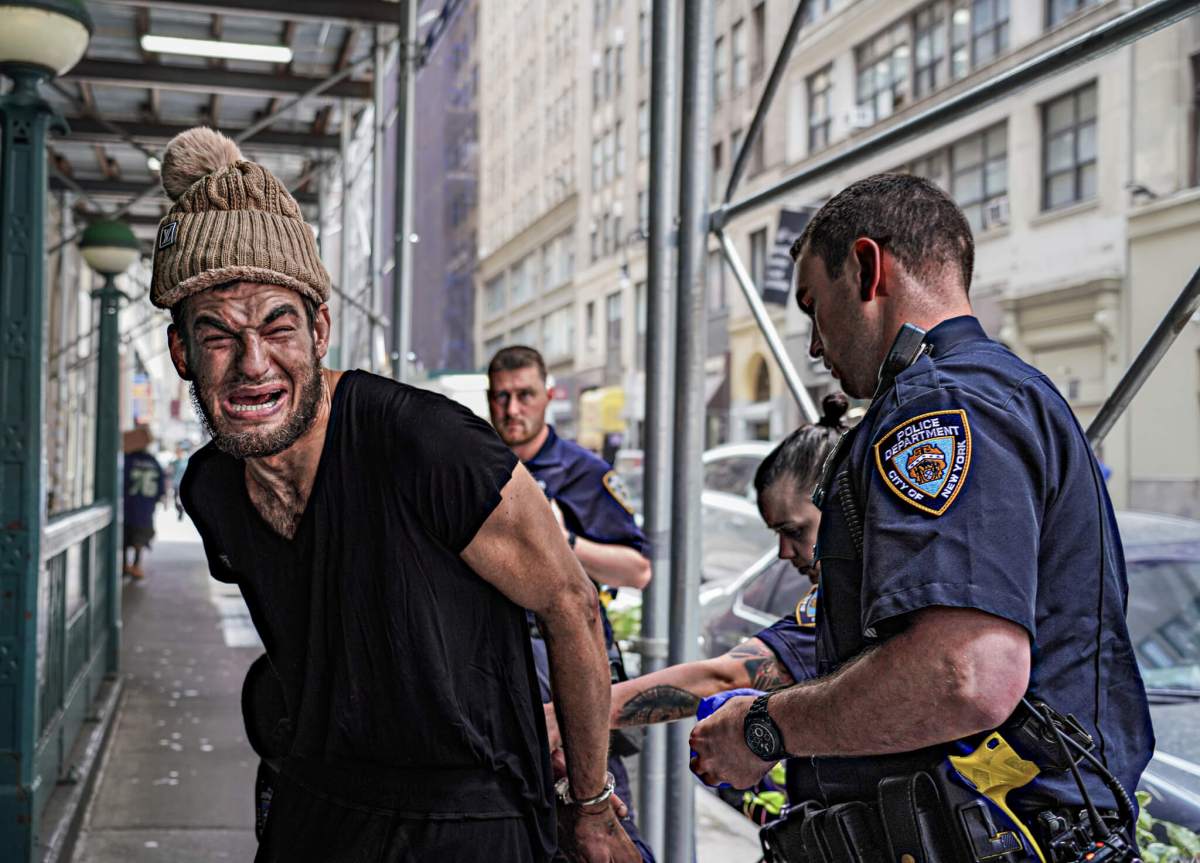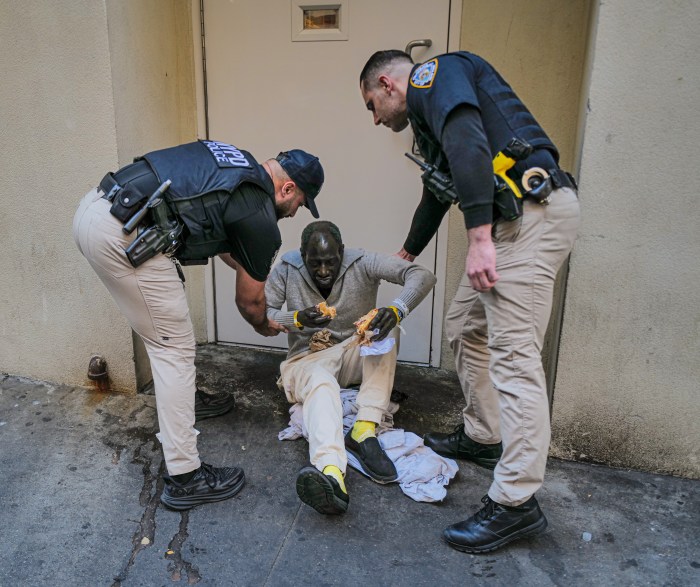Drug users are leaving the streets of the Garment District looking tattered.
The Midtown neighborhood is seeing high numbers of public drug users who slouch on the streets inserting needles into their veins, according to Midtown landlords, business owners, and pedestrians who spoke to amNewYork Metro. They say many of the drug users congregate beneath construction sheds where they can be found slumped over or passed out with needles still in their arms or resting on their laps.
This communal, seemingly unabashed display of drug use is coming with a cost, according to residents and business leaders. Storefront workers claim it is causing them to lose business, while landlords say their tenants are refusing to resign their leases due to the substance abuse issues right on their doorsteps.
Still, nobody in the Garment District appears to be more harmed than the users themselves. And according to one local business leader, the city continues to fail them.
“Blatant drug use in west Midtown Manhattan is not only demoralizing for the community, but also a visible manifestation of the failure of the city and New York State to help individuals with mental illness and addiction challenges. It is not okay for people to be shooting up and passed out on our streets, and our government needs to implement new solutions given that current methods are failing our communities,” said Barbara A. Blair, president of the Garment District Alliance.

According to a City Hall spokesperson, the mayor’s administration is attempting to work toward addressing this issue to make the area safe for everyone.
“In order to tackle the overdose crisis in our city, we are working with our partners across government as well as the small business community to connect people with services and make sure our public spaces and business corridors are safe and enjoyable for all New Yorkers,” a City Hall spokesperson told amNewYork Metro.
While those with a vested interest in the neighborhood say they are suffering, those partaking in the habit are also seemingly left without meaningful support. Once injected, those who are dependent are left exposed on the streets to theft or violence.
Additionally, with syringes strewn haphazardly, there are fears users will reuse the needles — potentially exposing themselves to disease.
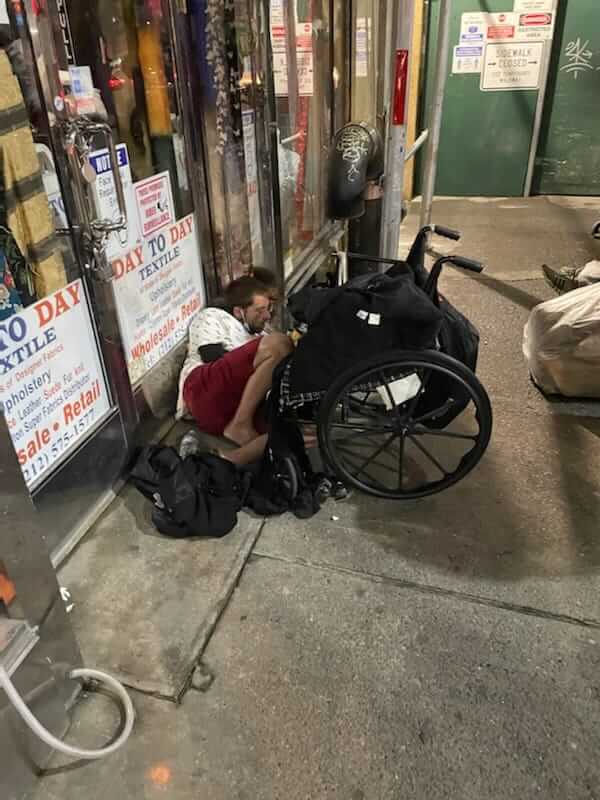
amNewYork Metro spoke with one user on 35th Street and 8th Avenue on Wednesday morning. Sitting on a computer chair, Christopher bit on a syringe and prepared a fresh dose to numb himself.
He told amNewYork Metro that he procured the needles from Housing Works, an HIV and homeless support organization as a part of their attempt to stop the spread of HIV and AIDS.
But as he spoke with amNewYork Metro, two NYPD officers spotted the needle. Christopher was quickly detained by the officers who placed him in cuffs.
This left the man clearly suffering from mental health issues in deep distress. He shrieked, wept, and begged the officers to release him. Pleading, Christopher was led into the back of an ambulance, showcasing the plight of users in the area.

With workers, building owners, and even the users all undergoing discomfort from the public drug use, many are looking for a solution that could benefit all involved. With the individuals struggling with substance abuse stating that they receive the needles from Housing Works located on 301 West 37th Street, some are pointing the finger of blame at the harm reduction methods.
The chief executive officer for Housing Works Inc., Charles King, disagrees.
“First of all, the area is in the middle of a transit hub. There’s a high density of homeless people between the Penn Station and the bus terminal, who basically congregate there to engage in survival activities. So no, no question that there’s a large presence of people who inject drugs in that neighborhood. But that’s not something that is new,” King said.
Positive Health Project is an initiative that has been conducting syringe exchange since 1995. Housing Works took over Positive Health Projects’ facility on West 37th Street in 2019 and has continued this harm reduction mission.

“A lot of the increase has to do with COVID and its impact on the behavior patterns of homeless people living with HIV. It used to be a very busy, busy business corridor. There were a lot of fast-food operations in the neighborhood, as well as highly trafficked streets, particularly during the course of the business,” King said.
This high pedestrian foot traffic in the Garment District serves as an opportunity for some drug users to panhandle for their habit. Prior to the pandemic, some of these users would use fast-food restaurant’s bathrooms; however, many of these sites have closed.
King believes that if there were an overdose prevention facility in Midtown, similar to the drug consumption gallery in Harlem and Washington Heights, users would be able to inject safely and the number of individuals out on the streets using would decrease. Housing Works Inc. is calling upon Mayor Eric Adams’ administration to allocate funds toward creating overdose prevention facilities.
“That would indeed give people who are injecting, particularly people who are homeless and had no place to inject safely, a safe place to go where they can inject under supervision with the ability to receive rapid recovery treatment in case of an overdose,” King said.
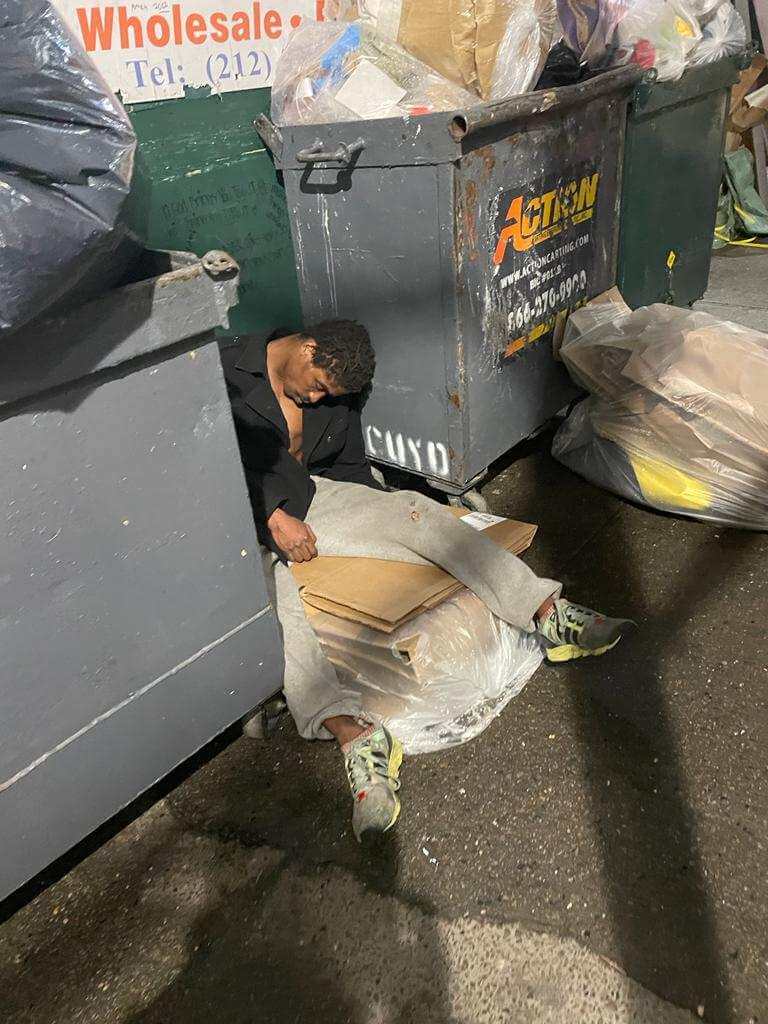
Kings also believes that Adams is concentrating so much on displacing homeless individuals through his Subway Safety Plan and encampment sweeps instead of allocating funds toward safer options.
“For people who are homeless and living on the street that would be very harm reduction focused on where we’re still trying to find a location that will satisfy the mayor,” King said. “We’re looking in Jamaica, Queens where I’m told that at the Central Station in Jamaica, they’re removing several 100 homeless people every night and many of them are people who inject drugs, or we’d love to be a part of that solution. But again, that requires the city investing the resources to make it happen. Unfortunately, the city’s been very good at investing resources in police and clearing the homeless,” King said.
As the issue continues to grow more dire, those in Midtown ask what can be done to make life better for all involved?
“Every overdose death is a tragedy and we must use all tools available to prevent them. Overdose prevention cent
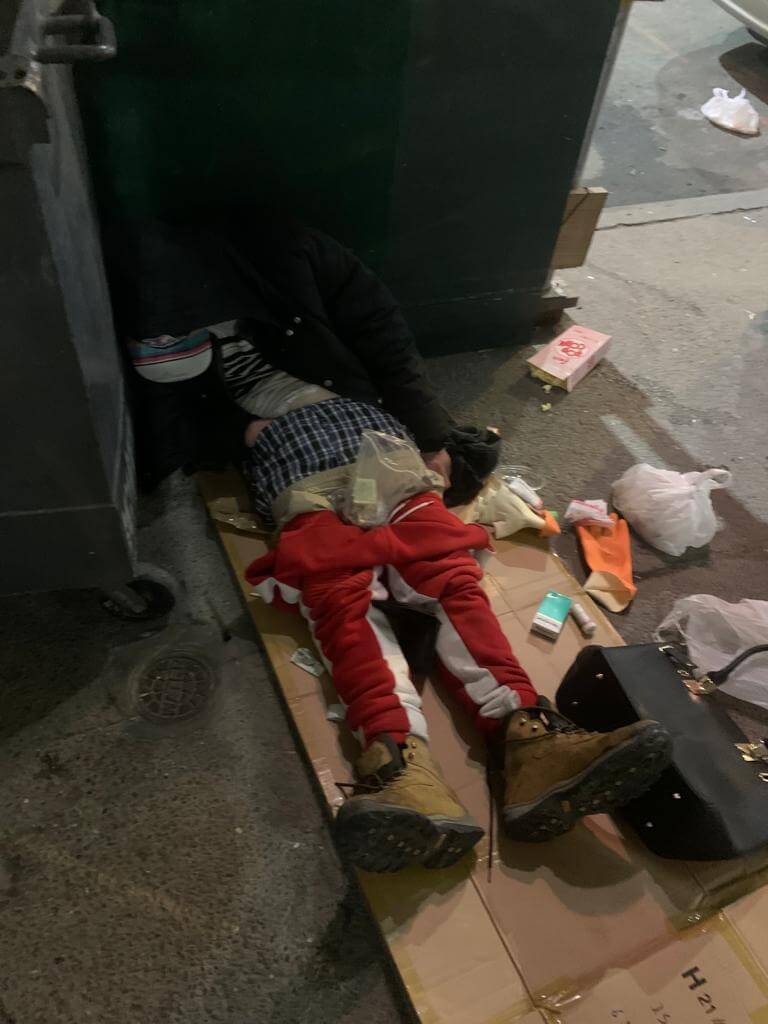
Read more: NYPD Hosts Event to Combat Catalytic Converter Theft



